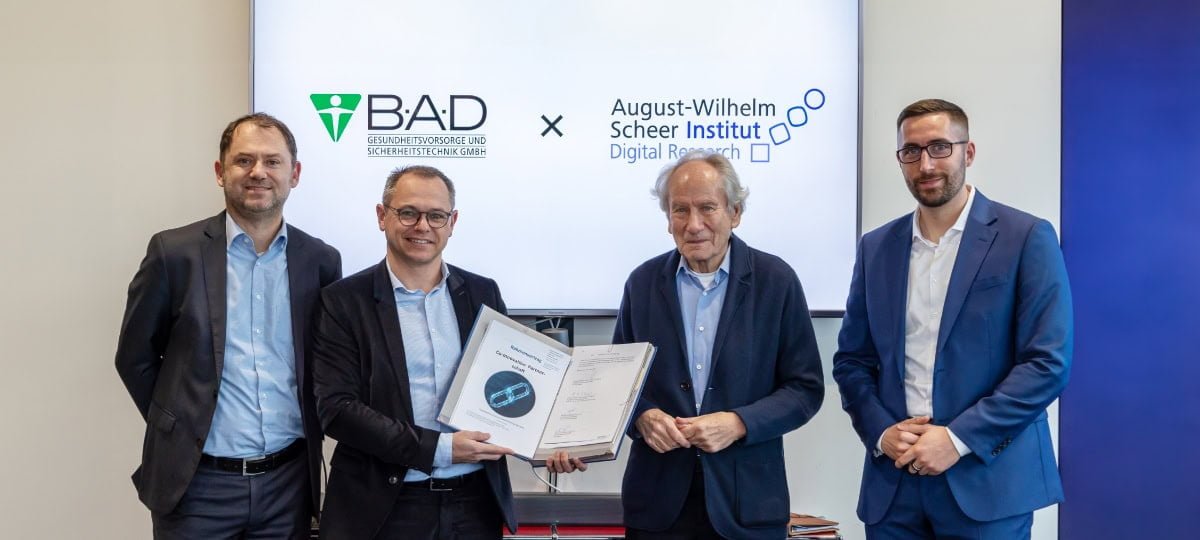Adventure outsourcing


Business departments are also subject to the changing times. They see themselves as customers of IT and expect answers to trends such as globalization and demographic change.
Thus, the quality requirements for IT departments are constantly increasing. In addition to scalable solutions and effective cost management, a focus on business issues and innovations is expected today.
In addition, in view of the shortage of skilled workers, companies must also position themselves as attractive employers and offer employees an exciting environment with prospects.
To meet these challenges, it helps to focus on core competencies and reduce vertical integration - or in other words, to outsource certain IT tasks to external service providers.
IT outsourcing opens up opportunities for companies to better meet their daily challenges. Companies thus gain access to the service provider's process and project know-how with the possibility of a know-how transfer.
They also create scope for establishing an optimum fit between business requirements and the system landscape. In addition, the IT services provided are not only transparent and flexible, the cost structures can be optimized through the use of near- and offshore delivery models and the flexible adjustment of capacities in line with actual demand.
However, the company also gains access to the expertise of future-oriented technologies and can thus participate in the service provider's strategic partnerships.
When it comes to IT outsourcing, many companies act according to a simple rule: Everything that is not part of the core competencies or business-critical processes and can be sourced more cost-effectively can be outsourced.
But is it really that simple? The answer is a clear no. Because in addition to the right partner, the IT organization must also have some skills to ensure that IT outsourcing is implemented sensibly and successfully.
First of all, the most important question should be clarified: What do I want to achieve with IT outsourcing? To answer this, the IT department must be able to incorporate strategic business objectives.
It must know whether IT should be a reactive service provider or a driver of innovation. Whether the focus is on low costs and stable processes or flexibility and quality. A suitable strategy must then be developed, defining which processes or services are to be outsourced.
The next step is then to find the right partner. To do this, the IT department must be able to prepare and carry out the corresponding tenders. Once the right partner has been found, the necessary structures must first be created and processes installed for successful collaboration.
The scope and structure of the service organization correspond to the character and scope of the collaboration. It is important to define clearly defined responsibilities and role content and to ensure equal representation on the customer and supplier sides.
Another building block is a meeting structure as a decision-making podium for discussing operational, tactical and strategic topics with clearly defined participants, topic focus and meeting frequency.
Once the first steps have been successfully implemented, the next step is to fill the contract with life. The IT department must be able to handle the financial transactions resulting from the contract, such as service fees, material or project costs, and to control the suppliers.
This includes SLA (Service Level Agreement) management, which involves defining targets, monitoring compliance with them, and coordinating cooperation with suppliers at all levels.
Furthermore, the contract must also be adapted to changing requirements and lessons learned. Last but not least, the transfer of services to the service provider also places high demands on the IT organization.
After all, in addition to transition planning and implementation, the IT department must be able to successfully introduce the new structures and rules of the game and test and validate the outsourced services.
In short, the IT organization must manage the transformation from an operational service provider to a partner at eye level for internal customers and managers of external suppliers.
Conclusion
The demands on IT departments are growing continuously - outsourcing selected processes and areas helps to meet the increasing challenges.
However, a successful shift of responsibility requires not only the best partner, but also skills within the company's own organization. So before companies plunge blindly into the IT outsourcing adventure, they should first check whether their own IT department is equipped to handle it. The right partner will then help identify and close any gaps.




